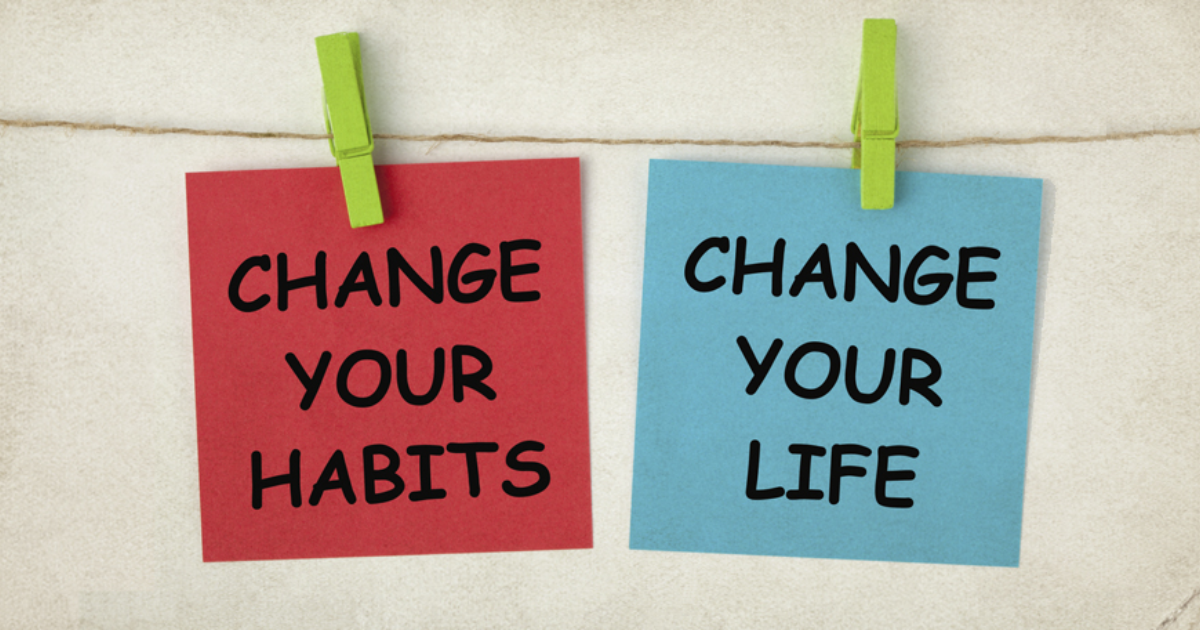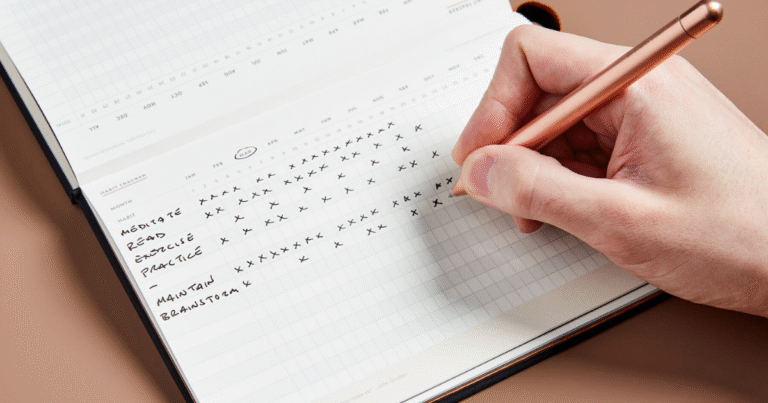Make Habits Stick: 5 Powerful Tools You Need

Table of Contents
Introduction: Why Making Habits Stick Is So Hard
Have you ever promised yourself you’d start waking up early, hit the gym every day, or finally stick to a reading routine—only to see your motivation vanish after a couple of weeks? If so, you’re not alone.
The truth is, starting a habit is easy. Sticking with it long enough to see results? That’s where most people struggle. Motivation fades, life gets busy, and before you know it, you’re back to old patterns.
But here’s the good news: building lasting habits isn’t about having superhuman willpower. It’s about using the right tools and systems that make habits stick naturally. In this article, you’ll discover 5 powerful tools you can start using today to finally lock in the habits that matter most to you—whether that’s getting healthier, being more productive, or improving your mindset.
Why Do Habits Fail?
Before diving into the tools, it’s important to understand why habits often don’t last. If you’ve failed to maintain a habit before, it doesn’t mean you’re weak—it means your strategy was missing a key ingredient.
The Psychology Behind Habits
Every habit follows a simple three-step loop:
- Cue – The trigger that starts the behavior.
- Routine – The action you take.
- Reward – The benefit your brain receives.
This cycle, explained by Charles Duhigg in The Power of Habit, is why habits are so powerful—they rewire your brain to run on autopilot. But if you don’t design the loop properly, the habit won’t stick.
Common Mistakes That Destroy Habits
- Starting too big, too fast.
- Relying only on motivation instead of systems.
- Failing to track progress.
- Not building accountability.
- Setting vague goals with no structure.
- By avoiding these mistakes and applying the right tools, you’ll set yourself up for success.
5 Powerful Tools to Make Habits Stick
Now, let’s get into the heart of the matter: the five tools that will help you make habits stick for the long term.
Tool 1 – Habit Tracking Apps
If you don’t track it, you won’t improve it. That’s why habit tracking apps are one of the most effective tools for building consistency.
Why habit tracking works:
- Gives you a visual reminder of your progress.
- Turn daily actions into streaks that you don’t want to break.
- Provides motivation when your energy dips.
Popular habit-tracking apps to try:
- Habitica – Gamifies your habits like a role-playing game.
- Streaks – Simple app that helps you build momentum.
- Loop Habit Tracker – A free, easy-to-use tracker for Android.
- Notion – A customizable productivity tool where you can build your own habit tracker.
💡 Pro tip: Start with just one habit in your tracker. Checking off that single win each day builds momentum faster than juggling ten at once.
Tool 2 – Accountability Systems
When it’s just you, it’s easy to make excuses. But when someone else is watching, your odds of success skyrocket.
Why accountability works:
- Provides external motivation.
- Build commitment—you don’t want to let others down.
- Creates encouragement during low-motivation days.
Ways to build accountability:
- Find an accountability partner with a shared goal.
- Join online communities or mastermind groups.
- Use apps like Coach.me, where you can hire coaches or join group challenges.
📊 Did you know? According to research from the American Society of Training and Development, having an accountability partner increases your chances of success by 65%, and regular check-ins can boost that number to 95%.
Tool 3 – Environment Design
Willpower isn’t reliable, but your environment always influences your actions. If you want habits to stick, design your surroundings to make good choices effortlessly.
Examples of environment design:
- Want to exercise? Keep your workout clothes by your bed.
- Want to read daily? Place a book on your pillow every night.
- Want to eat healthier? Stock your fridge with fruits instead of soda.
This concept, explained in James Clear’s bestselling book Atomic Habits, shows that small changes in your environment can transform your behavior.
💡 Pro tip: Remove friction for good habits and add friction for bad ones. For example, uninstall social media apps from your phone if you want to cut down on scrolling.
Tool 4 – Journaling & Reflection
Writing down your thoughts might seem simple, but it’s one of the most underrated tools for personal growth and habit success.
Why journaling helps habits stick:
- Increases self-awareness—you see patterns you’d miss otherwise.
- Provides a space to reflect on wins and setbacks.
- Strengthens commitment by writing down why your habit matters.
Ways to journal for habit success:
- Keep a habit journal where you note daily progress.
- Use prompts like: “Why do I want this habit?” or “What stopped me today?”
- Combine journaling with gratitude to keep your mindset positive.
💡 Pro tip: End each day by writing one sentence about your progress. This simple act reinforces your commitment.
Tool 5 – Reward & Gamification Systems
Your brain loves rewards. That’s why gamification—turning habits into a game—is such a powerful tool.
Why rewards work:
- Release dopamine, which motivates you to repeat the behavior.
- Create positive emotions linked to the habit.
- Build momentum with small wins.
Ideas for rewards:
- Treat yourself to a coffee after finishing a workout.
- Use an app like Duolingo, which keeps you hooked with streaks and badges.
- Set up a point system where you earn rewards after a streak of successes.
📌 Pro tip: Choose rewards that support your long-term goals (e.g., a relaxing walk instead of junk food).
Strategies to Reinforce These Tools
Using tools is just the first step. To make habits truly unshakable, combine them with smart strategies.
Start Small and Scale Gradually
Don’t aim to meditate for 30 minutes daily from day one. Start with just 2 minutes and build from there. Micro-habits compound into big results.
Pair Habits with Identity
Instead of saying, “I want to run,” say, “I am a runner.” Your habits stick better when they align with who you believe you are.
Celebrate Small Wins
Acknowledge progress, no matter how small. Every win builds confidence and keeps you motivated.
FAQs About Making Habits Stick
How long does it take to make habits stick?
Research suggests it takes around 66 days on average, though it varies depending on the complexity of the habit.
Can small habits really make a big difference?
Yes, small habits compound over time, creating massive transformation. Think of them as tiny investments in your future.
What is the best tool to make habits stick?
The best tool is the one you’ll consistently use—whether that’s a habit app, accountability partner, or journal.
Why do most habits fail after a few weeks?
Because people rely on motivation instead of systems. Without accountability, tracking, and environment design, habits fade quickly.
Conclusion: Build the Life You Want with Lasting Habits
Making habits stick isn’t about willpower—it’s about systems, tools, and strategies that work with your brain, not against it.
By using these 5 tools—habit tracking apps, accountability systems, environment design, journaling, and reward systems—you give yourself the structure to succeed.
Now it’s your turn. Don’t wait for motivation to show up. Pick one tool today, apply it to just one habit, and take the first step toward building the life you want.






